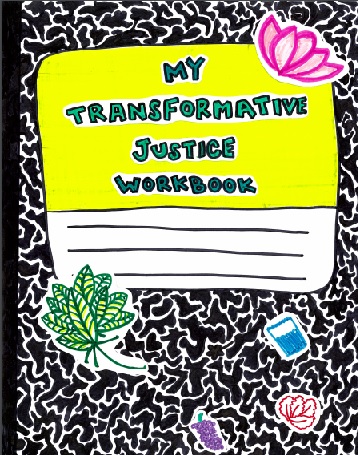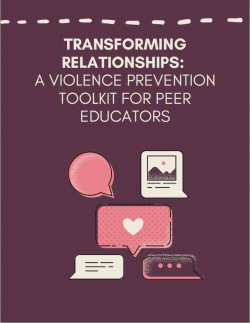Resources Library: Advocates
Start a Search:
Transformative Justice Workbook

This workbook was collaboratively created by staff of the Virginia Anti-Violence Project (VAVP) and the Virginia Sexual & Domestic Violence Action Alliance (Action Alliance) after 6+ months of conversations and a desire to engage our communities around Transformative Justice and how we both respond to and prevent violence outside of state-based systems that target and criminalize people of color ( particularly black people and communities), queer and trans people, poor folks, immigrants and undocumented communities, disabled folks, and other marginalized communities.
Click here to download the workbook.
Transformative Story Telling for Social Change
A Handbook: Why transformative storytelling approaches?
This online handbook provides conceptual reflections, practical experiences, and methodological guidance on transformative creative and visual storytelling methods. These creative storytelling approaches combine a participatory, collaborative methodology with the creative use of technology to generate stories aimed at catalysing action on pressing social issues. They are important, as they contain all these elements, to help us respond to key political, technological and cultural trends in our societies.
Click here to access the handbook.
Transforming Care in Tribal Communities for Sexual Assault Survivors Through Partnership and Technology
For many remote Indian communities, it often is difficult to create, develop and sustain trauma-informed and culturally appropriate services and resources as part of a health response for Indigenous women who have been sexually violated. Sexual assault nurse examiners (SANE) have specialized training, education, and experience in providing quality forensic medical examinations and patient-centered care to survivors. Given high medical staff turnover, it is challenging to keep SANE nurses on staff in tribal community health care facilities. Join us for this webinar to learn how the National TeleNursing Center, Hopi Health Care Center, National Indigenous Women’s Resource Center, and Hopi-Tewa Women’s Coalition to End Abuse are working effectively in partnership to respond using telemedicine to the needs of victims of sexual assault living on tribal lands with limited resources.
Click here to view the webinar.
Transforming Relationships: A Violence Prevention Toolkit for Peer Educators

This document serves as a tool for young adults and supportive professional staff who want to cultivate safer thriving communities on their college campuses. The goal is to empower student leaders to use their knowledge and skills to make transformative change, which will aid their own development as well as pave the way for future classes of students to do the same. The toolkit dives into foundational knowledge, key frameworks, and activities for peer educators to use in their programming.
Transitional Housing for Survivors of Domestic and Sexual Violence: A 2014-15 Snapshot
With funding from the U.S. Department of Justice, Office on Violence Against Women (OVW) (OVW grant 2012-TA-AX-K003), the American Institutes for Research’s National Center on Family Homelessness has completed a comprehensive review of transitional housing for survivors of domestic and sexual violence. The report and accompanying media, released in early 2017, look closely at the programs, the diverse individuals and families served, the varied operating environments, the types of challenges faced, and the range of approaches taken.
The report is built around interview data from in-depth conversations with more than 120 current and former OVW grantees. In addition to hundreds of comments from providers, each of the report’s 12 chapters, on different aspects of the subject, contains information from and links to pertinent literature and online resources. As a whole, the report provides a robust and detailed snapshot of transitional housing programs, illustrating the essential role they play for survivors, and the importance of a survivor-centered, trauma-informed approach that reflects local conditions. The report and accompanying webinars, podcasts, and broadsides can be accessed at http://www.air.org/THforSurvivors/.

